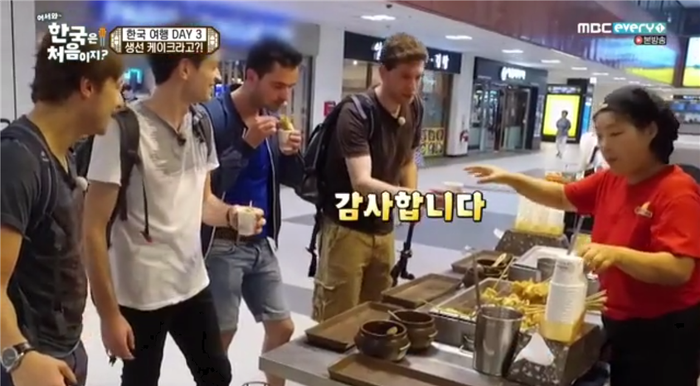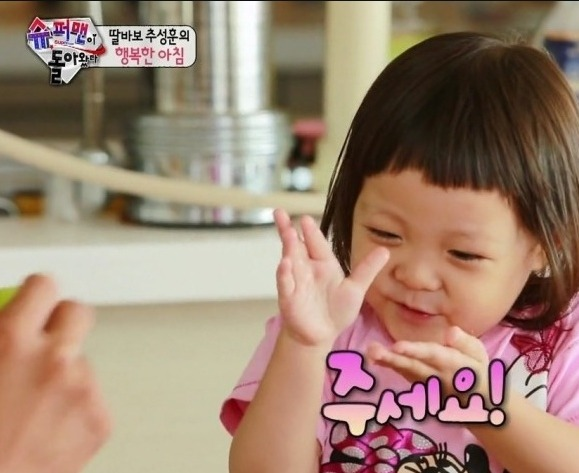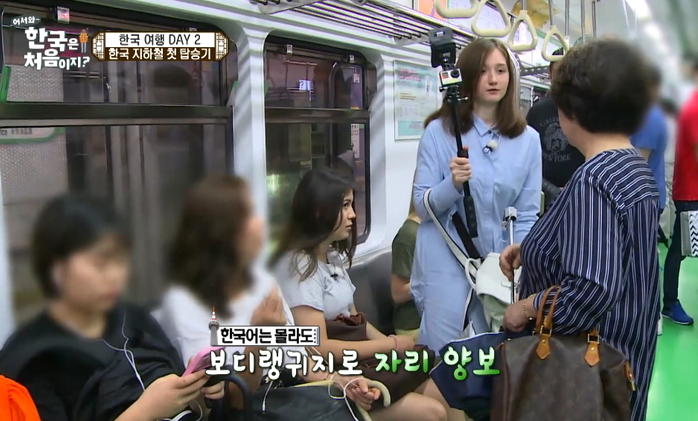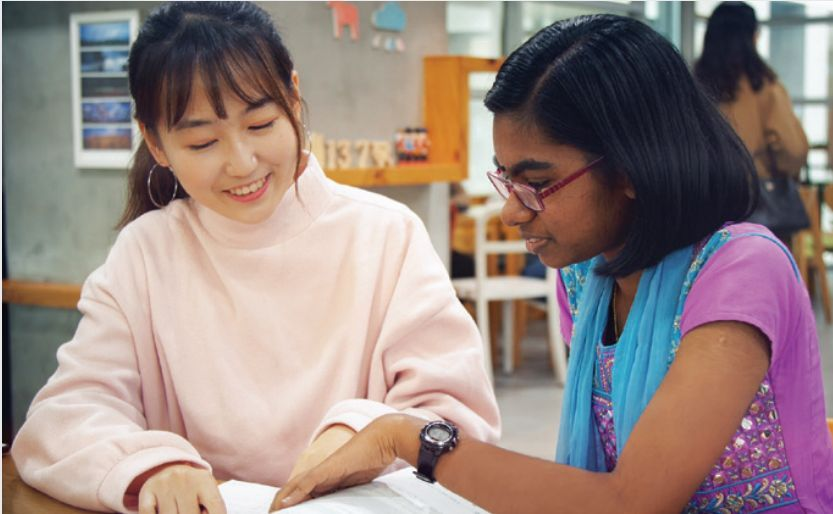Korean language is distinctive from other languages and locals feel very proud about how scientific and easy Korean language is. However, Unlike what they say, for foreigners it is very hard to learn and understand Korean. Today we will introduce some background knowledge of Hanguk-eo and Hangul, and useful phrases as well. I'm sure you'll find it helpful!
Features
Korean & Hangul

Korean language consists of Korean language (한국어, Hanguk-eo) and Korean alphabet (한글, Hangul). Studies show that Hanguk-eo was used in Korean peninsula since prehistoric ages, and historic records from the Three Kingdoms Period shows that they had independent language from China. Hanguk-eo is the official language of both South and North Korea, even though two language has developed quite differently over the years.
Hangul on the other hand was created in 1446 by King Sejong. Before this, people of Joseon had to use Chinese alphabets to write. Since Chinese and Korean language is very different, it was very difficult for general population to learn to read. Hangul was developed to perfectly match the Korean language, and it has brought Korean culture, literature and study to another level. It's why locals always pick King Sejong as greatest historic figure. If you have tried, you must have noticed it is easy to learn the letters, even though using it is quite a different matter.
Grammar
First obvious grammatical difference between English and Korean would be the structure of a sentence.
- English : I (n.) + like (v.) + you (obj.)
- Korean : 나는 (I, n.)+ 너를 (you, obj.) + 좋아해 (like, v.)
It's the most simplified version of a sentence and with more grammatical components the difference would be even bigger. But, if you are just traveling in Korea don't worry about grammar too much. If you use the right words "나는 (I) 좋아해 (like) 너를 (you)" doesn't sound absurdly wrong like "I you like". Locals would actually say it like that to emphasize the verb, so don't worry about the structure if you are not studying in Korea.
Another grammatical difference is that Korean often omit nouns or objectives. For the sentence above, it is understandable if you say "like you." ,but it is kind of awkward to say "I like" or just "like". For Korean it is okay to say "좋아해 (v.)" and you can see this expression in K-dramas often. In this case too, however, don't worry about it if you are not majoring Korean language. Full sentence will do just fine.
Honorification
Another difficult thing about Korean is honorification. According to the age of the person you are talking to, or talking about honorification will be added or dropped. For instance if you take "Did you have dinner?" and turn it into Korean.
- To elders : 저녁 [식사하셨어요]?
- To friends : 저녁[먹었어]?
"식사하다" is a formal way of saying "dine", while "먹다" is informal way to say "eat". You put "셨어요" which is a honorific ending to say it politely. Similar ending would be "ㅂ니다(mnida)", "ㅂ니까?(mnikka?) which shows respect to the listener. Some foreigners learn informal expressions first, because they learn Korean from dramas or from their friends. I recommend that you learn expressions with honorifics first, since it's never wrong to be polite, and it doesn't sound wrong even if you say it to the minors.
Dialect
 Source : Reply 1994
Source : Reply 1994
The dialects in Korea were very much different from each other back in the days. Nowadays however, since everyone shares the same media, there are accents left, but basic vocabularies are almost universal. (Except for Jeju dialects, which is hard to understand even for locals). Two most distinguished dialects would be Gyeongsang-do and Jeolla-do dialects. Gyeongsang-do dialects are more manly while Jeolla-do dialects sounds softer. If you have watched Korean drama series "Reply 1994", you will feel how different their accents are. In real life, it's just fine if you use standard Seoul Korean.
Useful Korean Phrases for different situation
Common Phrases
- 안녕하세요 | Annyeonghaseyo / 안녕 | Annyeong
"안녕하세요" is a greeting in Korea. Annyeong means 'peace and well' in Korean, so 안녕하세요 literally it means 'are you well?', but it is used as hi or hello. Annyeonghaseyo is a honorific style of saying hi. If you met an elderly person, or someone for a first time you can say "annyeonghaseyo". If you are talking to a friend "annyeong" will do. You can also say "annyeong" for farewell, but not "annyeonghaseyo".
- 감사합니다 | Gamsahamnida

Source : Welcome, First time in Korea
"감사합니다" is "thank you" in Korean. There is "고맙습니다 (Gomapseumnida)", which also means thank you, but "Gamsahamnida" is the most formal way of saying it. There is no informal ways of saying 감사합니다, like 감사해 with out ~ㅂ니다. If you want to be less polite to a friend you should say "고마워 (gomawo)". But as I have said it previously, polite is better than impolite, so keep "gamsahamnida" in your mind if you want just 1 phrase to remember.
- 알겠습니다 | Algesseumnida
"알겠습니다" means "I get it" or "I understand". If someone told you something you can say "알겠습니다". But "okay" is a common phrase in Korea so if you can't remember "알겠습니다" just say "okay" and everyone will understand.
- 괜찮아요 | Gwaenchanayo
"괜찮아요" means "It's okay". Just like in English it can be a comforting word, or be a polite way of saying no. If someone worries about you, you can say "괜찮아요" to comfort them. If someone asks you to try something you don't want, just say "괜찮아요" and it means no. If you raise the end of "괜찮아요" to make it an interrogative sentence "괜찮아요?" means "are you okay?.
- 죄송합니다 | Joesonghamnida
"죄송합니다" means "I'm sorry". There is also "미안합니다 (Mianhamnida)" which means sorry, but "Joesonghamnida" is the most formal way of saying it. There is no informal way of saying "죄송합니다", and you have to say "미안(Mian)" or "미안해(Mianhae)" to apologize to your friend. If you say "죄송합니다" to a friend, it feels a bit awkward, so try to remember "미안", just in case.
- 안녕히 계세요 | Annyeonghi gyeseyo / 안녕히 가세요 | Annyeonghi gaseyo
These two are both farewells. "안녕히 계세요" is a farewell to a host, which would literally mean "stay safe". You can say "안녕히 가세요", to a leaving guest, or if you have met outside you can say it to each other. You can say "잘가 (Jalga)", if you want to say "안녕히 가세요" in a more friendly way.
- 사장님 | Sajangnim / 저기요 | Jeogiyo

Source : Welcome, First time in Korea?
"사장님" means "boss", which is the most polite way to call the staff. You can raise your hand and say "사장님" to make an order or to ask for something. "저기요" is basically the same but much less impolite to call on somebody. It's better to call for "사장님", but when it's just too obvious that the staff is not a boss, call out "저기요!".
- 물 좀 주세요 | Muljom juseyo
"물 좀 주세요" means "can I have some water please". 물 = water, 좀 = some, and 주세요 (Juseyo) means "give me" or "can I have". If you want something else like tissue or side dish, you can say it like, "티슈 좀 주세요 (Tissue jom juseyo)" and "반찬 좀 주세요 (Banchan jom juseyo)".
- 추천해주세요 | Chucheonhaejuseyo
If you don't know what to order, you can ask for recommendation. "추천해주세요" means, "recommend a menu for us". Staff will probably recommend signature menu or the best selling menu for you.
- 매운가요? | Maeungayo?
This phrase is necessary for someone that can't stand spicy Korean food. "매운가요" is asking whether the food is hot or not. If yes you can ask to make it less spicy by saying "덜 맵게 해주세요(Deol maepge haejuseyo)".
- 더 주세요 | Deo juseyo

Source : The Return of Superman
It has similar meaning to ~좀 주세요, but this is for asking for some more. If you need some more of the dishes, you can call "사장님" and ask for "반찬 더 주세요 (Banchan deo juseyo)" for more side dishes.
- 가주세요 | Gajuseyo
"가주세요" means "Let's go". You can put the place you want to go in front and ask the driver to go there. If you want to go to Gangnam you can say "강남으로 가주세요 (Gangnam-uro gajuseyo). "으로 (uro)" means "to" here.
- 내려주세요 | Naeryeo juseyo
If you took the cab and you want to get off, tell the driver "내려주세요". You can also say it on bus for help, but keep in mind that you have to press the stop button beforehand for the bus to stop.
- 여기 앉으세요 | Yeogi anjeuseyo

Source : Welcome, First time in Korea?
It might not be practical as other phrases, since it means "sit here". In Korea it is a polite thing to offer your seat to the elders. If you want to show respect to the elders you can offer your seat and say "여기 앉으세요". However, even in Korea it is not easy to find young people offer their seat to the elders.
- 잠깐만요 | Jamgganmanyo
"잠깐만요" means "just a moment please". If you are looking for your wallet or your transportation card you can ask the driver to wait just a moment by saying "잠깐만요".
- ~있어요? | ~Isseoyo?
If you want to know whether they have something at the store, before looking for it all over, you can ask "A 있어요?" which means "Do you have A here?". Just put what you are looking for at where A is and you can save time and effort when shopping.
- 얼마예요? | Eolmaeyo?

Source : TWICE TV
If you can't find the price tag you can ask "얼마예요?" which means "how much is this". Also If you are shopping in traditional market, asking for the price is the first step for discount, so don't be afraid to ask "얼마예요?"!
- 깎아주세요 | Ggaggajuseyo
If you think the price is too high, or if you just want some discount ask for discount by saying "깎아주세요". If it is a franchise store there isn't much room for discounts, but if you are in traditional market or small shop, just ask for discount and you can save much money. This is just the start and bargaining process is up to you.
- 담아주세요 | Dama juseyo

If you need plastic bag or paper bag to take the item you bought, tell the staff "담아주세요", which means "put it in a bag". You might have to pay about ₩50 for the bag, so ask for it before you pay.
- 입고 갈게요 | Ipgo galgeyo
It's the opposite situation from above. If you just want to wear the cloth you just bought, tell the staff "입고 갈게요" meaning you'll wear it. They'll get rid of the tags for you to wear it comfortably.
- 더 둘러보고 올게요 | Deo dooleobogo olgaeyo
If the manager is too kind, it is hard to say that you won't buy from here. You can say "더 둘러보고 올게요" which means "I'll look around for some more". You might return if you can't find anything or you can just get away from the store without guilty feeling.
Korean Buzzwords
Buzzwords come and go very quickly. I'll try to introduce some phrases used often for a while. They' might not be so fresh, but useful.
- 대박 | Daebak

Source : Infinite Challenge
"대박" is a word you'll constantly hear if you travel Korea. It has two different meaning; 1) Big success 2) Exclamation. It was used for the first meaning like "사업이 대박났다", which means "the business was a big success". Nowadays it is used for second meaning, used with 헐 (hul) which also means wow. Say "헐 대박" to show how much of a surprise it is.
- 맛집 | Matjib
You can't find a perfectly matching word for "맛집" it's generally a place that sells good food. Nowadays it's used for praising things other than food. For instance if you want to say that place is famous for cherry blossom (벚꽃), you can call that place "벚꽃 맛집".
- 꿀잼 | Kkul-jaem / 노잼 | No-jaem
"꿀" means "honey" and "잼" is shortened version of "재미", and together it means "so much fun". In contrast, 노잼's "노" is literally "no" which makes "노잼", "not fun at all".
- 극혐 | Geuk-hyeom
"극혐" is a compound word of 극(extreme) and 혐오(hatred). Say "극혐" which literally means you extremely hate it. But it's meaning has been mitigated and it is used in more playful way.
- 소확행 | Sohwakhaeng

Source : Knowing Bros
"소확행" is a word that describes the way of life, that cherishes the little happiness of life. It's a compound word of 소소하지만(small but) 확실한 (certain) 행복 (happiness). Young people are tired of competition and striving for wealth. They look for happiness around them which made this word very popular.
How to learn Korean

If you have time and effort to learn Korea, you can apply for Korean language school in Korean Universities. You'll be able to learn Korean according to your level of speaking and writing. This will also help you in future if you want to have a job related to Korea, since you can get TOPIK certification while you study in Korean schools.
K-Pop / K-Drama
Most of Korean lovers came through this route. If you think of learning Korean as study, you will get tired very soon. However if you love the contents it will stress you out less. Look for good dramas and movies on Netflix and try to understand what they are saying. That might help you out with your Korean learning.
This blog was about background knowledge of Korean language and useful Korean phrases. If you have any questions, or would like to learn more Korean phrases, leave a comment or send us an e-mail. We'll get right back to you.
See you next time!




